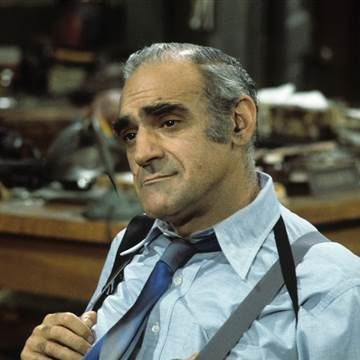These days, there are basically two reactions I have to the news of a celebrity’s death. Either guilt that I haven’t gotten to them yet for Celebrating the Living or else a different guilt that obviously my writing about them has caused their death. It’s actually kind of a running joke that appearance in the column jinxes people, which is why I’m not writing about anyone connected with The Man Who Killed Don Quixote, because Terry Gilliam doesn’t need that from the universe. And there’s at least three people involved that I want to write about at some point.
It’s not fair, though. Julie Adams was the hundredth person I’ve written about for the column, counting the Coens as a single person. Many of them were seventy or older; I’ve done centenarians. No one I’ve done for the column is younger than I am; that’s kind of a sticking point with me. It’s true that people younger than I am die, and of natural causes, but they’re less likely to and writing about them makes me feel older than I am. So no one younger than forty, which still gives us a six-decade range. And unless I’m missing someone, five people I’ve written about have died. Abe Vigoda was 94. Doris Roberts was 90. Ron Glass was 71, but he’d been in poor health since at least 2005. Debbie Reynolds was 84 and suffered a serious shock. And June Foray was 99.
You see. If I were really a jinx, Olivia de Havilland and Kirk Douglas wouldn’t still be alive. I wrote about Alan Arkin because he’d had a heart attack, and he’s 83 and still going. Heck, even Charlie Sheen seems to be no worse than he was. (On any level, but let it go.) Five out of a hundred isn’t so bad odds as all that, is it? Especially given how old the average age is. I do not feel like doing the amount of math (and research) required to calculate it, but it’s got to be at least seventy, right? So that means a fair chunk of the people I’m writing about have passed their average life expectancy no matter how you calculate that.
Basically, the issue is that we have now drawn attention to them. Which is the point; we are talking about people I have (rather arbitrarily, I admit) decided are worth talking about this week. So if they then die, it strikes greater awareness because we were already looking. That is how this works; that is how our brains work. If you start paying attention to something, it appears to be everywhere. So when those five die—even if the fact that one of them was expected to drop dead at any minute had been a joke for literally decades—it seems to be a pattern, because we are pattern-seeking animals.
If I thought I were a jinx, I’d abandon the column. Not even “start writing about people I don’t like.” That’s some dicey moral territory even if you don’t believe in jinxes. Which I don’t. But I think I am weekly writing about people who are often old and sometimes in poor health, and if five of them over the course of two years have died, well, a lot more people than that have died in the last two years. Most of them weren’t even on the list.
Ten lucky people can pay me enough a year to bump someone to the top of the list. Even if you don’t want that privilege, there are other benefits to supporting me on Patreon.

